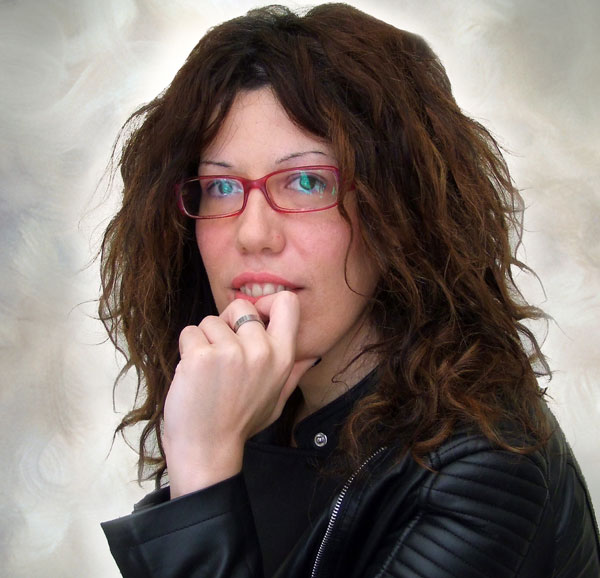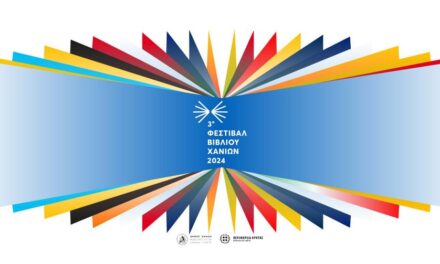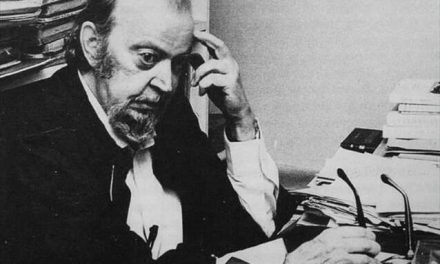Vagia Kalfa (Alexandroupolis, 1984) has published the poetry collections Απλά Πράγματα [Simple Things] (Gavriilidis editions, 2012) and Ληθόστρωτο [Οblivion Paved] (Ekati Editions, 2013). For her first poetry collection she received Yannis Varveris award of Hellenic Authors’ Society and Giorgos Athanas award of the Academy of Athens, while she was shortlisted for the State Literary Award for Newcomer Poet and the ‘Anagnostis’ and ‘Mandragoras’ awards. She has studied Modern Greek both at an undergraduate and post-graduate level, she holds a post-graduate degree in Gender Studies and is currently writing her PhD at the Department of Cultural Analysis (University of Amsterdam).
Which are the main themes your poetry touch upon? Are there recurrent points of reference in your writings? What role does language play in your poems?
It’s quite awkward to have to talk about my work; yet as for language I may say I am primarily interested in simplicity, in a language that needs no mediation to reach the reader. Personally speaking, I reckon that a poet’s language should experiment with different kinds of speech, without being afraid of becoming contaminated. Formal language, for instance, the medical or legal jargon, the news and advertisements, discourses used in various fields, the social media vernacular (as well as slang or a foreign language) constitute languages we are called upon and against which we stand – especially nowadays that we are bombarded with numerous, often incongruous discourses to the point of exhaustion.
To say that you will avoid words of such discourses because they are not poetic or elegant enough, with no musicality whatsoever, or because they are polysyllabic etc, constitutes, as far as I am concerned, an elitist approach, considering that these words articulate our personal narrative. On the other hand, I understand those writers who wish to free their works from ideological constructions. Yet, I feel that even in this case, the use of words that are, let’s say, more ‘natural’/less ‘constructed’ (e.g. the sun, the seagull, the lake), if we ignore Saussure’s theory on the arbitrary character of the linguistic sign, also articulates some ideology/personal narrative that is more univocal than the openness of meaning we intend to read (a discourse analysis could possible prove this is the case). However, I realize that such a position – my personal preference for literalism, the conscious singularity that sounds as a brave recovery of the personal voice which leaves no room for any mediation between itself and the world – may for someone who has been burdened with numerous categorizations and labels be identified with policing. I equally understand that for some people the use of metaphors may constitute a kind of coping mechanism enabling them to assert their traumas. Thus in no way do I reckon that singularity and literalism are the only way. Yet, they work for me and the same goes for a number of feminist and LGBTQ voices.
Although I so much appreciate catching someone by surprise and what happens inside you through a particular combination of words or instant images, I also regard as elitist a notion of literature as an escape from the world or of a poet as the only true/genuine revolutionist against all the compromised of the world. The notion of defamiliarization, for instance, which regards the repetition of every day routine (such as eating vegetables or being concerned about paying the rent) as a compromise and death reminds me of cases when something should happen all the time, where there should always be obstacles or misunderstandings, given that otherwise we couldn’t live with ourselves or the others. As far as I am concerned, this often derives from a privileged position, especially when there is no awareness of its class character or the realization of how perception of time as a safe and linear continuity changes following traumatic experiences.
Ιn your thesis on Tasos Leivaditis (University of Birmingham, 2015), you characterized his poetry as a pendulum from extroversion to introversion, noting that his poetry remained throughout a ‘form of resistance’, and what changed was the context of such resistance. Tell us more
In my thesis, I categorized the work of Tasos Leivaditis in three periods following the example of researchers before me, trying at the same time to detect the continuities behind the discontinuities and ruptures they pinpointed, in order to form a narration related to the evolution of his poetics and his worldview – mainly because I was interested in the fate of a person deeply devoted to an ideology, which ended up in debris and how this permeated his art.
More specifically, I was interested in the passage from the second to the third period, which was unanimously regarded as the critical period of maturity (both at the level of poetic excellence – which in some respects indeed was – and at an ideological level: a poetry freed from ideologies, which was I suspect something good considering that the poet, during the previous two periods, was tested and approved first as political, with the word related to the concrete notion of ‘political’ as it is used in our country and not just at that specific period) and was comparatively considered much more important than the other two, presented as if it were born out of nowhere.
I personally consider that such an interpretation meant the annulment of his previous work, a feeling which was further strengthened by the lack of literary critique – with the exception of few, scrappy cases – on Εκκρεμές [The Pendulum], the only short story collection written by the poet in 1966 at the end of the second period of his poetry, as well as a neglect of other aspects of his work: apart from poetry and short stories, Leivaditis concisely adapted works by Russian classic writers, wrote fictional portraits of Greek novelists, as well as literary critiques on his contemporary poets. Thus, by including Εκκρεμές in my thesis (devoting a separate chapter to it) as well as his non literary works, I attempted to unlock, without forcing I believe, a reading of his whole production having in mind both poetry and revolution.
If we wanted to discern different periods in Leivaditis’s whole work – and this I assume will answer your question as well – we would mention the following: a. The ‘period of camp writing/extroversion’ (1952-1956) during which the poet places his poetry at a concrete place and time (the concentration camp in Makronisos during the Greek Civil War); as we move towards the end of this period his poetic lens moves beyond this specific socio-economic and political reality and fictional elements are introduced as well (with a simultaneous concealment of the time and place where his long narrative poems take place, allowing for his work to become somewhat more universal); b. the ‘existential period’ (1957-1966) during which the poet, following the defeat of the Communist party, considers the toll and is disenchanted, moving from the ‘ideal’ other/comrade to the actual one (with his compromises, his minor or major self-interests, his betrayals), as well as from the social mission (of communism/ of revolution and poetry) to the quest of a personal identity (preparing the identity of the poetic subject for the following period, which is comprised by anti-heroes/marginal people, which he brings to the fore in contrast to the heroes and the heroic tone of the first period); he is also particularly interested in determinism and the role of free will in the life of individuals; c. the ‘period of introversion’ (1972-1988), during which he moves from realism, filtrated at this point through the lens of the previous existential period, to the reconstruction of reality through the use of his own, personal symbols, and from autobiography (through the redefinition of the self and of life also filtrated through the lens of the existential period) to the formulation of a poetic (with fictional elements) persona and reality (where times and places are interweaved in order to create a highly evocative atmosphere).
Throughout this course, Leivaditis moves from the idea (which was central in numerous poets of the first post-war generation) that the poet should be socially and politically active, and from a poetry as a personal and historical document/testimony (in contrast to the ‘snotty verses’ of the bourgeois) (first period) to the idea that poetry constitutes a reflection (challenge and deconstruction) on experience, the meaning of existence and the content of personal freedom, the limits of memory and language (second period) and then to the idea that poetry is a personal transcendence/ reconstruction of reality through dreams, memory, fantasy and the unobstructed diffusion of the one to the other against the imperatives of common sense (third period).
According to Leivaditis, the poet (including Leivaditis himself) remains always a revolutionist, a resistance fighter. What changes over the years is the content of this revolution: during the first period against the formal state so that finally the trauma is overcome, a resistance against conformism and norms, and through the reconstruction of an individual’s quest in the world, the invention (and not the discovery) of personal identity. Throughout this course, what remains unchanged in Leivaditis’s work is his loyalty to the simplicity of the language of poetry (despite the realization that we may remain inexplicable throughout our life), to poetry as a common good (the reader he is interested in, as he writes in the poems of the first period, is someone from the lower social classes bearing serious traumas, and not the ‘adequate reader’ of Seferis – in contrast Leivaditis refers to the adequate writer who is the one responsible to find his reader), as something indispensable for survival and at the same painstaking, as manual work (i.e. of a coal miner).
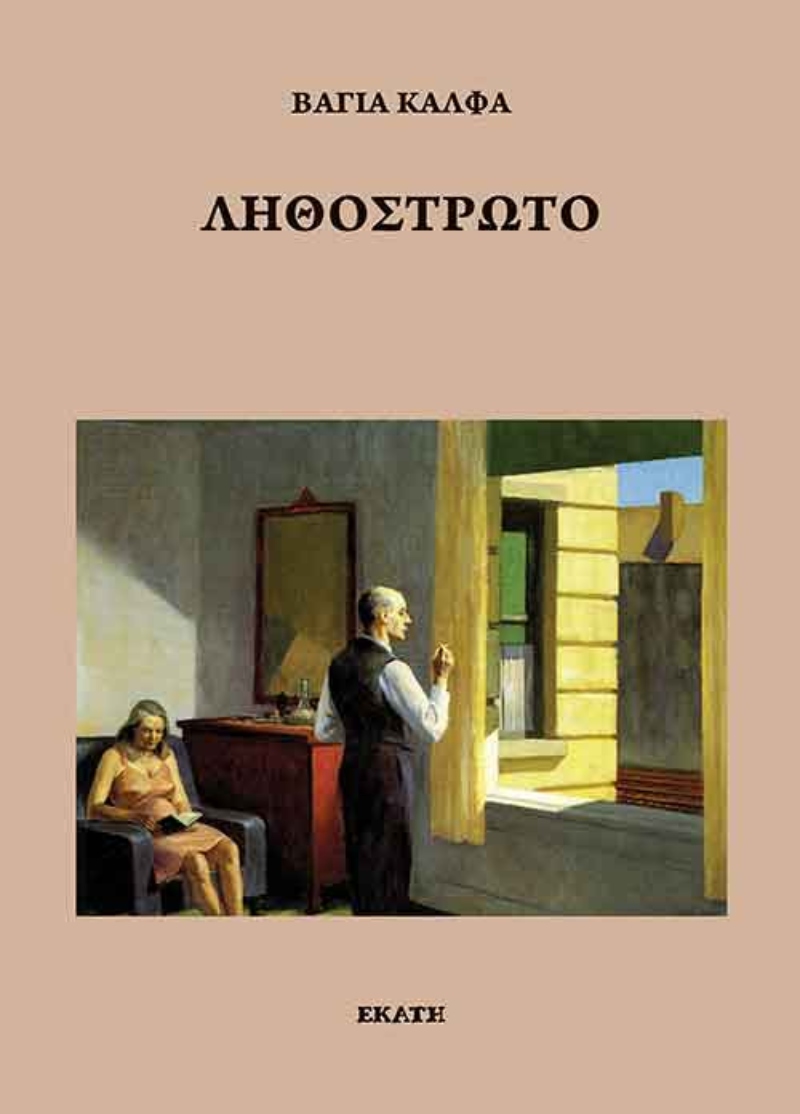
How do poets writing today relate to previous generations? Are there some common traits that would allow us to talk about a new ‘generation’ in poetry?
My personal objection to the notion of ‘literary generation’ refers to the fact that it is defined on the basis of a dominant trend, reproducing it and thus creating and perpetuating hierarchies, centers and peripheries, discerning between major and minor poets. I am interested in this notion only to the extent it allows for the existence of many different yet equal trends, as an all-inclusive term which is conducive to the writing of different histories and theories of literature. The existence of these concurrent yet different histories of literature allows writers themselves to have a better knowledge of the tradition they want to relate to and which they will attempt to renew (imagine for instance how much time a female writer would earn in 1920 in case she availed of a female tradition instead of trying to navigate herself through her representations in male literature, or, the a LGBTQ writer nowadays who would have a much clearer picture of LGTBQ tradition – contrary to a left literature writer who has this chance and starts from a different point, not having to invent the wheel) as well as literature readers and literature scholars to understand and orient themselves through a vast number of literary texts and movements.
Thus, in case we are willing to accept, for example, to be defined as a generation on the basis of a specific socio-economic and political context (a context which is quite distinct in Greece compared to the US, whose 9/11 is something quite different for us) we have to be careful not to define this generation based on the words of male and female poets included in it given that the economic crisis, for instance, is filtered quite differently in a LGTBQ poet compared to a straight man, in a worker, an immigrant or a neuro-different compared to a bourgeois, native neurotypical person.
This said, I would personally like to see the LGTBQ and female literature of our generation. I reckon that, mutatis mutandis, we could talk about a generation comparable to that of the 1970s. There is a growing dynamic presence of female and LGTBQ poets who give priority to what was considered until now private, apolitical and trivial: personal experience, while they deconstruct major categories such as gender or sexuality. I cannot exclude, and I would personally so much like to see, a new turn towards memoir-writing, to fictional (auto)biography, contrary to what happened until now in our country where only heroic established personalities were considered worth writing about. The fact that the words of renowned people are considered more important than those of anonymous ones derives from a male-centered, capitalist logic. For instance, if a white housekeeper writes her memoirs, it would probably be considered as a look through the keyhole; if a female worker does so it would be perhaps more appreciated given that class bears political connotations; if a man distinguished in his field does so, I would sooner or later be regarded as real literature.
Ιn a recent essay for the University of Michigan on “revolt”, you commented on the political aspects of gender and their revolutionary potential in literature. Could you elaborate?
Discussing the revolutionary potential of gender and sexuality in literature, what I had in mind was how literature could be renewed when people who write do so by courageously adhering to their epistemological position – and it takes a lot more courage in the cases that there is a smaller accessible tradition for specific groups.
Let’s consider, for instance, if we want to focus on gender and sexuality, how many times a woman hasn’t thought (or eventually done it) of excluding her gender and sexuality from a poem or a poetry collection in the name of a so-called universality which is by default the cis male heterosexual reality. Let’s consider the connotations related to the characterization of a poetry as female or homosexual: poems of the pans and the sanitary napkins, from sweet, flowery and innocent poems addressed to a female audience to hysterical, misandry poems when we talk about a feminist literature, or, in the case of homosexual poetry, poems considered to be purposefully written in a provocative way, yet allegedly in a mainstream fashion, though addressed to a restricted reactionary/traumatized (with all the connotations of non heterosexuality) audience). How many homosexual poets come to mind and which among their poems were the ones to be widely accepted? Which among their poems (and poems in general) received awards or were included in school textbooks?
I think of all the ways women and LGBTQ poets were excluded from the canon: their exclusion from anthologies and translations, which stands in the way of their becoming known by a wider audience, to the inclusion in such anthologies of some more digestible yet not representative or of high quality, from a derision of their themes and a moral characterization of the [female and LGBTQ] writer followed by the comment that he/she should not have written what he/she wrote.
That said, I realize how many more obstacles a non cis/non heterosexual/female writer is confronted with compared to a cis/heterosexual/male writer and how dangerous that is when she indeed writes and is worth acknowledgement.
More generally, how does literature converse the world it inhabits? What does it mean to be political or a-political especially in times of crisis?
The notion of the political is still male dominated. This is quite evident in the Greek history of literature. This is the main point I discussed in the text I wrote for Michigan University, while a more detailed version of my text on critique as a problem was published in Frear magazine (issue n. 2), in which I supported that the notion of literature that focuses on the political (within specific contexts) is male dominated (considering that for decades the public, which was identified with the political, was a male issue, while the private, which was considered non political – was a female affair) although alleged as universal. A case in point is the literary generation of the 1930s and the first post-war generation, which posed the question of the nation and the left ideology respectively, in which there is not an equal female, not to mention, a homosexual perspective as if there were no women or LGBTQ people or as if their existence and experience had no way to be heard given there were more important issues, projected as universal and genuinely political (genuinely literary). Yet, although the effect of the economic crisis, for instance, on everyone without exception cannot be doubted, it also cannot be doubted that such effect was not the same between the already poor and the already rich, between natives and immigrants, between the healthy and the disabled, between neurotypical and neurodifferent, among different ages, genders and sexualities (and their intersections).
In addition, although the economic or the migration (or recently the health) crises are among the first and maybe only crises that come to mind, there are so many other crises that take place simultaneously or without them (for instance gender issues, inequalities at work, [gender based] abuse, gender stereotypes and roles, stigmatization and exclusion of neurodifferents etc), which are quite often undetected.
What I want to point out is that we should consider the political (as well as the crisis, the trauma etc), which refers to everything that takes place in the world, as well as the human, in the words of Braidotti, from different and personal-based positions/perspectives, in order not to reach a certain relativism where nothing can be said, but to give voice to those deprived of it and thus enrich its meaning. In this way, we will realize that there is so many more to be said and that we simply have to find other ways to tell them (a lot have certainly be said on the part of the cis white heterosexual man of middle or high social background) and that there are so many more untold until now. Bringing these distinct experiences from the periphery to the center, certainties are provoked and literature is renewed not just in terms of the ways, techniques and forms, but in terms of content as well; thus society is shifted and becomes a bit more illuminated.
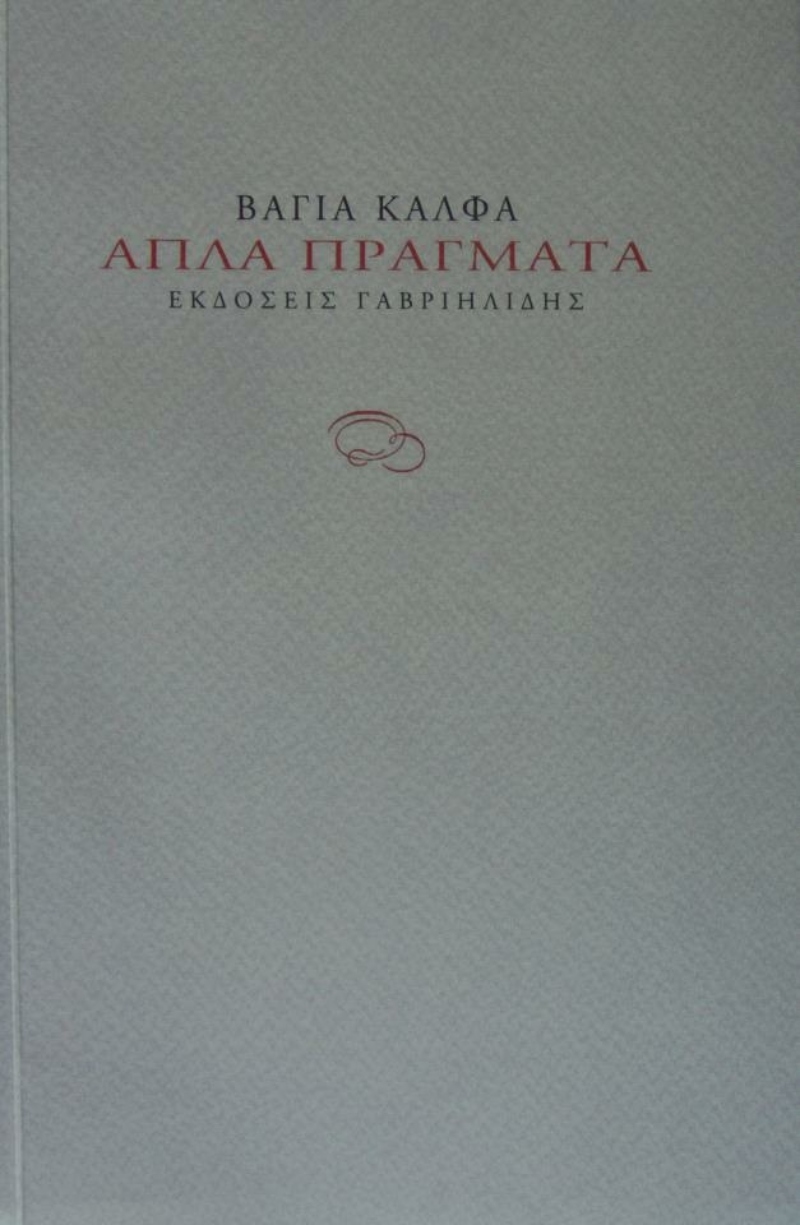
In recent years, there has been an extraordinary burgeoning of poetry in every form: graffiti, blogs, literary magazines, readings in public squares to mention just a few. How would you comment on this strong civic awareness?
We live in a period so dense in global events, even if we just consider the last decade. So many things come to mind: the publication of the “Iraq War Diaries”, the global economic crisis, massacres in public areas (in Colorado, in Connecticut), carnages related to homophobia, such as in Pulse Club in Orlando, the election of Trump. And more recently: the murder of Floyd when the violence of white policemen against the black population made us realize the extent and impunity of such crimes and thus understand what Black Lives Matter means.
In addition, the Arab Spring, the overthrow of Kaddafi, the civil war in Syria, the rise of the Islamic State with a series of terrorist attacks in France (Charlie Hebdo, Bataclan), Turkey, Belgium, Germany etc which triggered anew an islamophobia and questioned the conviction that the white European public space is safe (a first such blow came with the bomb attack in Norway, one of the countries with the lowest criminality, committed not by the Islamic state, but by a far-right extremist), the rise of far-right and authoritarianism in Europe, the refuge crisis, with refuges being drown in seas or be abandoned in camps.
They constitute developments on the way we think, beyond class, nation and religion, gender and sexuality: the arrest of Strauss Kahn for rape, the conviction of Pistorius (just a five-year sentence in prison) for the murder of his girlfriend, the revelation of New York Times for a great number of rapes and social harassments by Weinstein, the appearance and diffusion through the social media of the #metoo movement which has started to break the silence and the guilt of victims giving voice to unprivileged women. A bit earlier, the Brock Turner case which, through the media, allowed for the creation of a massive movement of filing rape reports in American universities, showing the failure of academic authorities to protect the victims, their concern over hiding the perpetrators (especially the athletes of academic teams) in order to safeguard their reputation, which made clear the whole attitude which doesn’t allow victims to denounce their rape. Not to mention Poland where the attempt to pass a law forbidding abortions was met with demonstrations that managed to annul the attempt, an important victory which cannot be celebrated considering that we have such a long way ahead regarding women’s right to self-disposition.
In Greece (where in the last few years we have witnessed the signing of memoranda, Marfin, capital controls, Manolada with its strawberry fields, the entry in the Greek Parliament of Golden Dawn, its activity and conviction) we were recently faced with the culture of rape following the torture, rape and murder of Eleni Topaloudi and more recently with the official complaint for rape filed by award-winning athlete Sofia Bekatorou; it seems that the #metoo movement has reached our country (it was about time given that various similar cases were brought to light, in Cyprus as well, as the case of the English student in Agia Napa and the Metaxa case, thanks to the diffusion of feminist ideas through the internet and feminist activism). We have come face to face with homophobia and transphobia, as in the murders of Vaggelis Giakoumakis and Zackie Oh.
The coronovirus pandemic (and its management) proved beyond doubt how abnormal normality actually is and that there are things that not all of us experience (in the same way) or that are not said.
For me literature, and art in general, constitutes a kind of indignation which arises from such events, amid simultaneous and often contradictory discourses, the breaking of silence, the articulation of an individual and collective ego. As when you are famished and you go out and break or destroy without considering whether this is appropriate or elegant, the same is with paper and the graffiti, a kind of ‘bomb’ erupting in the golden salons of expression. I consider that this is more than anticipated, and quite festive, when those voices multiply, regardless of their expressive means.
How do Greek writers relate to world literature today? How does the local/national interweave with the global?
I reckon that nowadays, considering that many poets have migrated and live abroad, as well as thanks to the speed and accessibility to information through the internet, there is a more immediate contact with contemporary foreign poets in real time, and not just through reading older poets in the prototype or in translation. This is especially true for poets writing feminist, queer, LGBTQ literature, given that they may feel there is no such tradition in Greece, with which they could connect and further advance. In this respect, let me mention the case of Sam Albatros, who systematically translates queer English-speaking male and female poets and whose work has been quite conducive in the acquaintance with modern foreign poetry (diasporic/feminist/queer/LGBTQ), as well Teflon literary magazine, which has introduced to the Greek audience, among others, feminist and black voices. There should also be noted the diffusion of feminist (next to anticolonial, anticapitalist) ideas, the activism of feminists, which created a fertile ground in order for these poets to be read, questioning the idea of a common, universal experience.
That said about the reception of foreign poetry, I am not so sure about the reception of works by Greek poets abroad. Indeed, certain Greek poets have been translated abroad or have been included in anthologies, while there are various projects and slams that allow contemporary poets to move beyond national borders and display their work; yet I reckon that language may constitute a barrier for a poet coming from a smaller/peripheral literature to reach foreign audiences. There are even more obstacles for poets who are not so easily accepted in their own country.
On the other hand, I am quite pleased that there are such poets in Greece, as well as publishing houses that support them (i.e. Αutogkol Editions, Queer Ink), as well as foreign poets, in U.S. for example, which have come to the fore, next to white male and female poets, English-speaking African-Americans as well as poets from Vietnam, Palestine, Korea etc (let me just mention Donte Collins, Hieu Minh Nguyen, Fatimah Asghar, Franny Choi, Safia Elhillo, Warsan Shire, Ocean Vuong and so many others) who write about oppression, exclusion, the stigma and violence arising from the intersections of race, class, colour, religion, gender, sexuality, neurodifference and their combination. I might be naive to believe that we may have started to move away – probably quite slowly or symbolically at first – from the notions of center and periphery, the major and the minor, the rule and its exceptions, those binarisms of thought.
*Interview by Athina Rossoglou
TAGS: LITERATURE & BOOKS | READING GREECE

